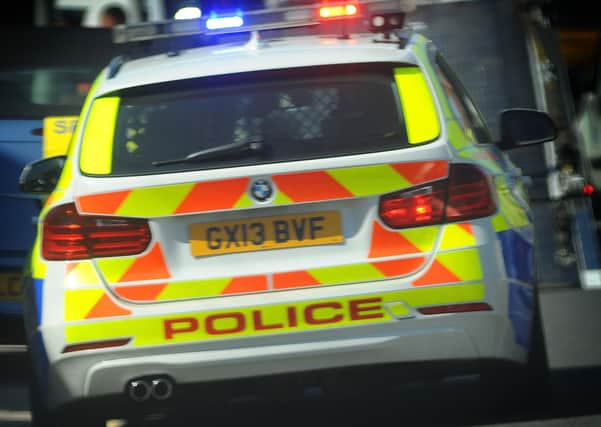Police seize cache of 101 weapons from Selsey home


The work was carried out as part of the intelligence-led Operation Safety, which aims to reduce serious violence in public spaces and reduce knife crimes committed against young people.
The figures were shared with a West Sussex County Council scrutiny committee by Chief Inspector Nick Bowman during a presentation about the work of the Safer West Sussex Partnership.
Advertisement
Hide AdAdvertisement
Hide AdMr Bowman told the meeting that the cache of 101 weapons was found at a home in Selsey thanks to information received from UK Border Force.
He said: “Part of reducing crime is trying to get these weapons off the street.
“UK Border Force forwarded to us intelligence that the occupant was purchasing weapons, including fire arms and knives and various other pepper sprays, from the internet.”
A police spokesman said a 38-year-old woman was arrested on suspicion of importing prohibited weapons and was released under investigation while enquiries are ongoing.
Advertisement
Hide AdAdvertisement
Hide AdThroughout August, Operation Safety saw 84 pieces of intelligence logged, with officers searching 25 homes and making seven arrests.
Mr Bowman shared details of the frightening array of blades seized by police in 2019/20.
Most were pen knives or lock knives, with a total of 31 seized. The rest included 14 kitchen knives, two swords and a machete or meat cleaver.
That year, 983 pieces of intelligence were logged, 770 stop searches were carried out, 44 homes were searched, 89 weapons were seized and 214 arrests made.
Advertisement
Hide AdAdvertisement
Hide AdOperation Safety has seven objectives ranging from tackling knife crime by patrolling hot spots, to educating and engaging with communities on the dangers of carrying a knife, and using information and intelligence from partners such as the NHS to work out where patrols are needed.
Mr Bowman said: “The objectives are being met.
“We are putting in a huge number of resources, probably once or twice a week, and we’re being led by the intelligence so we’re going to the places where the problems are.
“Hopefully we will have the positive impact that we’re aiming to have.”
Talk is increasing of further lockdowns in the UK. What do you think of the situation? Join the Big Conversation and have your say on everything from healthcare to how the pandemic has affected you personally and how we make our communities stronger.